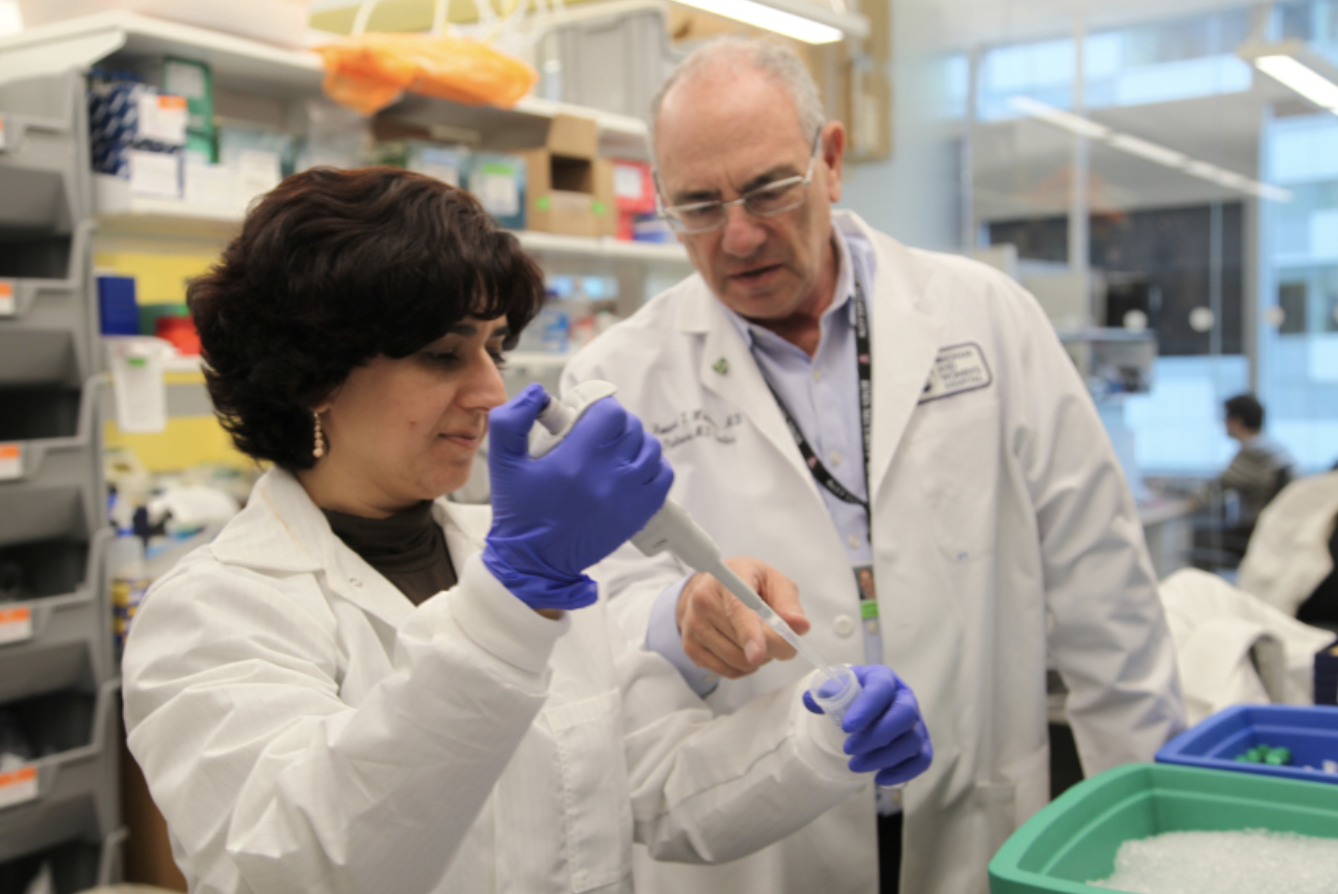The Ann Romney Center for Neurologic Diseases at Brigham and Women’s Hospital (BWH) was founded on the belief that promising advances occur when research in one disease area is applied to other disease areas. This is precisely the model that informed a potentially life-saving discovery for patients with glioblastomas — a deadly form of brain cancer.
In a paper recently published in Science Immunology, researchers, including our co-director, Howard Weiner, M.D., and lead investigator Galina Gabriely, Ph.D., describe a potent antibody that unleashes the immune system to kill cancer cells. Interestingly, the same antibody was originally developed to understand the underpinnings of multiple sclerosis (MS). Dr. Weiner explains, “As a neurologist, I never expected I would be publishing a paper about cancer immunotherapy. But during the course of our MS research, we had an idea that turned our investigation around, and we are very pleased with the results.”
This new study is a promising step forward for patients who suffer from cancers such as glioblastomas and melanoma. According to Dr. Gabriely, “Knowing that the same T cells which prevent MS can also promote disease progression in cancer patients, we decided to explore if an antibody called anti-LAP could precisely target and eliminate T cells, thus restoring the immune system’s ability to fight cancer. Our findings revealed that anti-LAP does indeed have the potential to activate immune response against cancer, leading to reduced tumor growth.”
Drs. Gabriely and Weiner are now consulting with Tilos Therapeutics to modify anti-LAP for use in human clinical trials. They are also collaborating with BWH Department of Neurosurgery Chair E. Antonio Chiocca, M.D., Ph.D., to extend and advance this groundbreaking research.


